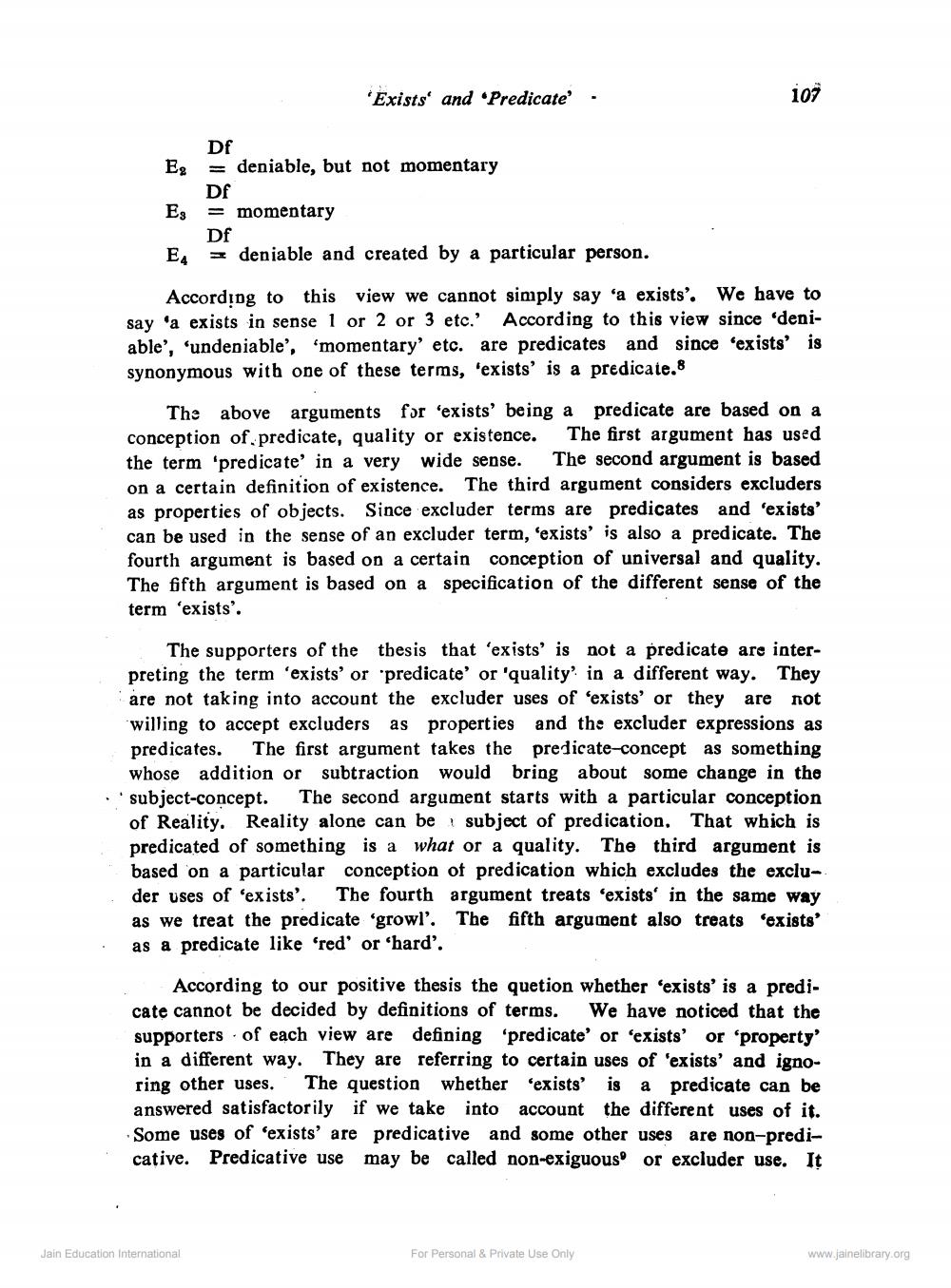________________
Exists' and Predicate' .
102
Df
deniable, but not momentary Df E, = momentary
Df E4 = deniable and created by a particular person.
According to this view we cannot simply say 'a exists'. We have to say 'a exists in sense 1 or 2 or 3 etc. According to this view since 'deniable', 'undeniable', 'momentary etc. are predicates and since 'exists' is synonymous with one of these terms, 'exists' is a predicate.8
The above arguments for 'exists' being a predicate are based on a conception of predicate, quality or existence. The first argument has used the term 'predicate' in a very wide sense. The second argument is based on a certain definition of existence. The third argument considers excluders as properties of objects. Since excluder terms are predicates and exists' can be used in the sense of an excluder term, 'exists' is also a predicate. The fourth argument is based on a certain conception of universal and quality. The fifth argument is based on a specification of the different sense of the term 'exists'.
The supporters of the thesis that 'exists' is not a predicate are interpreting the term 'exists' or 'predicate' or 'quality in a different way. They are not taking into account the excluder uses of 'exists' or they are not willing to accept excluders as properties and the excluder expressions as predicates. The first argument takes the predicate-concept as something whose addition or subtraction would bring about some change in the subject-concept. The second argument starts with a particular conception of Reality. Reality alone can be subject of predication. That which is predicated of something is a what or a quality. The third argument is based on a particular conception of predication which excludes the excluder uses of 'exists'. The fourth argument treats 'exists in the same way as we treat the predicate 'growl'. The fifth argument also treats 'exists' as a predicate like 'red' or 'hard'.
According to our positive thesis the quetion whether 'exists' is a predicate cannot be decided by definitions of terms. We have noticed that the supporters of each view are defining 'predicate' or 'exists' or 'property in a different way. They are referring to certain uses of 'exists' and ignoring other uses. The question whether 'exists' is a predicate can be answered satisfactorily if we take into account the different uses of it. Some uses of 'exists' are predicative and some other uses are non-predicative. Predicative use may be called non-exiguous or excluder use. It
Jain Education International
For Personal & Private Use Only
www.jainelibrary.org




